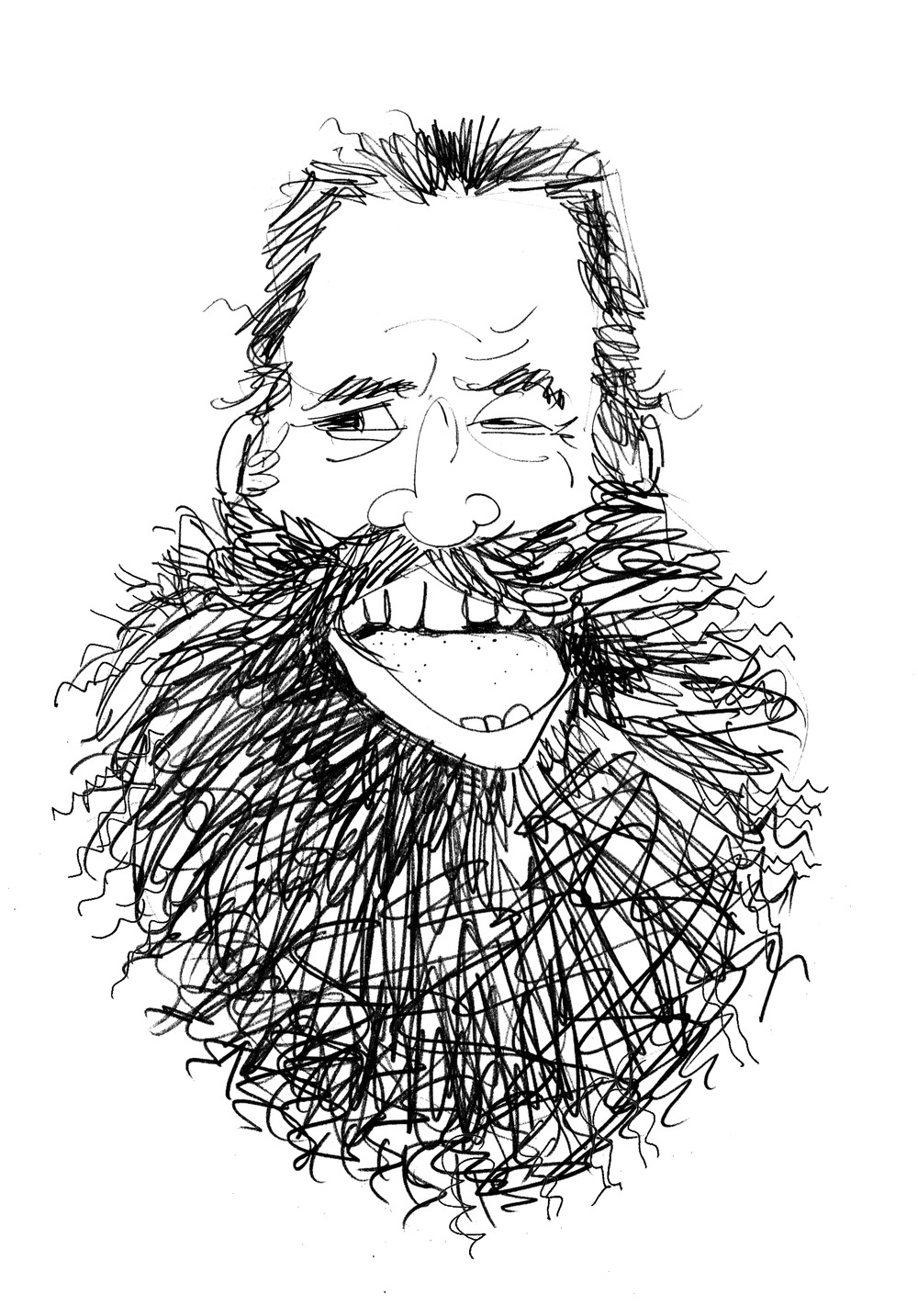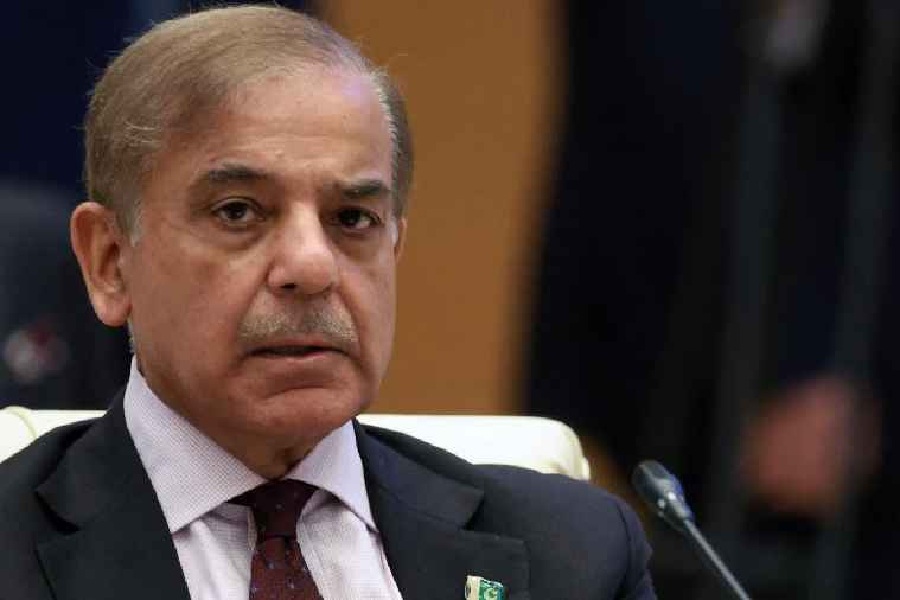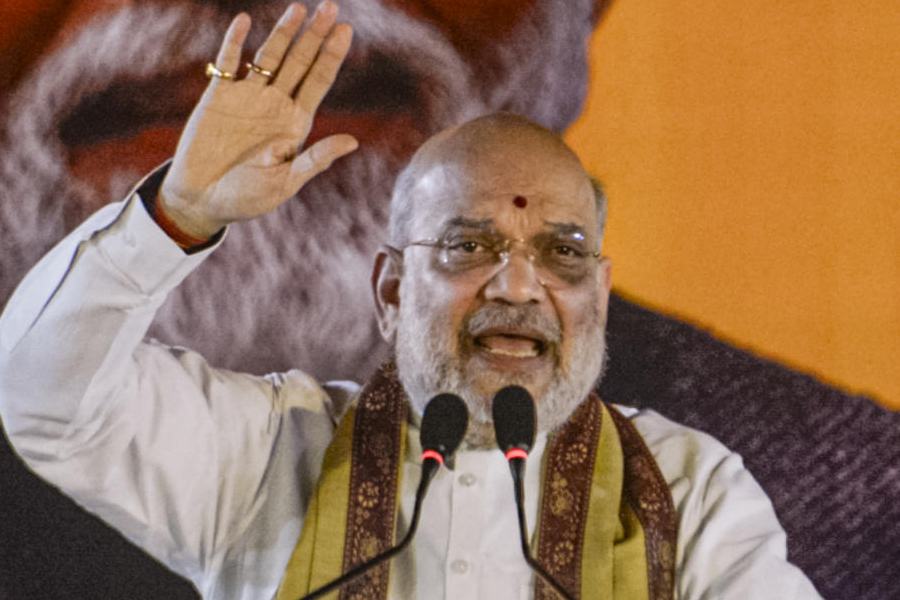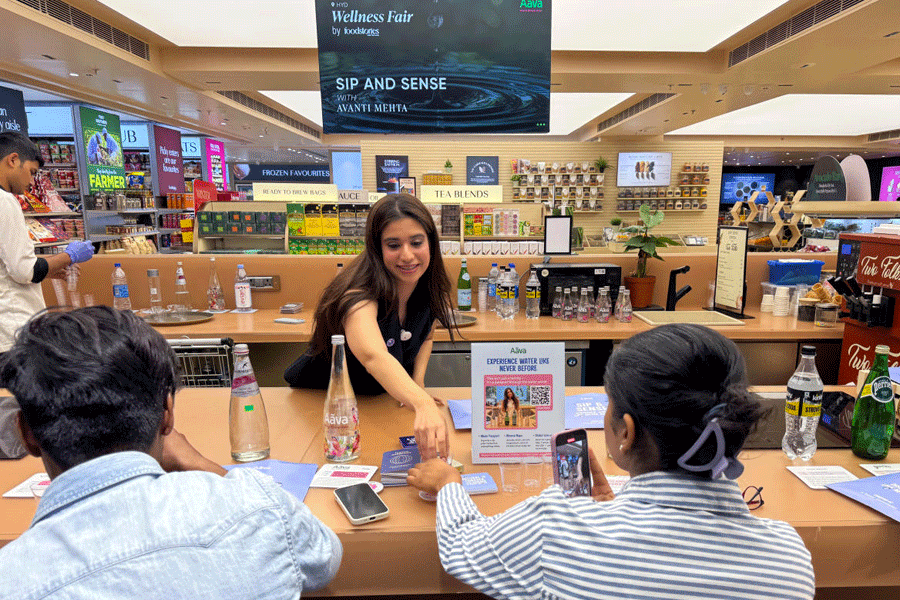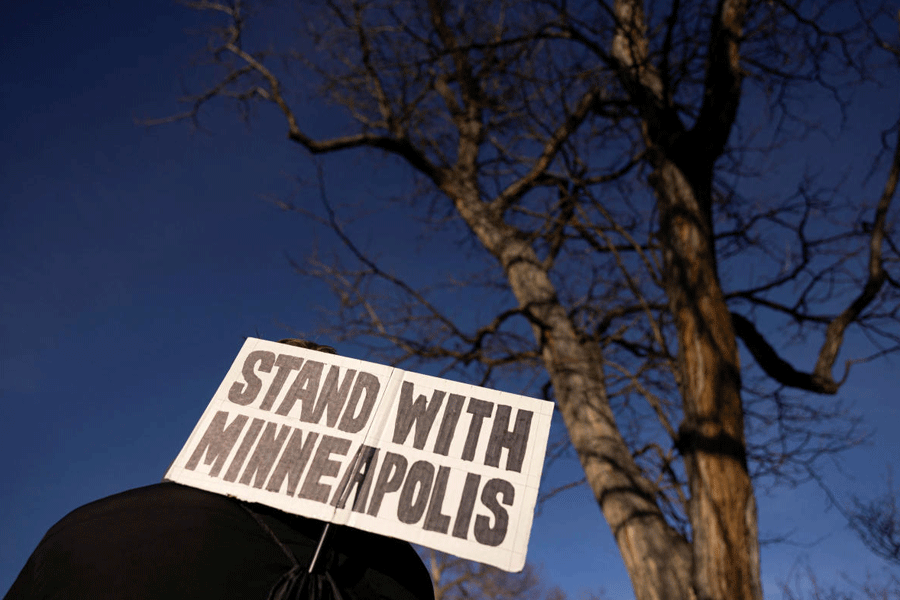
Baba Ramdev laughs as he presses my hand. "Just be yourself," he says. I have told him, half in jest, that the bright lights and the camera recording our conversation make me feel like I am sitting in a television studio. "This is just for our own record," he says, laughing some more as he clips a lapel mic on to his saffron robe.
I was waiting at his farmhouse when Ramdev, 51, swept in - a white Toyota Fortuner, escorted by two security vehicles with CRPF jawans carrying X95 assault rifles, fingers on the trigger. Two guards in civvies, Glock pistols in their waist holsters, escorted him to the door.
Ramdev is ensconsed in a gated colony of sprawling farmhouses on the western edge of Delhi, one of the best addresses that money can buy in these parts. The capital's swank T3 Air Terminal runway is just round the corner, but we don't hear the planes. Instead, there is the chirping of birds atop a large mango tree.
Ramdev sits ramrod straight on one end of an off-white, velvet draped sofa. He looks chuffed about the phenomenal success of Patanjali Ayurved, the Rs 5,000-crore company that he and its managing director, Acharya Balkrishna, founded a decade ago.
"The multinationals are shaking in their boots. There wasn't a single Indian brand to take them on. Now people are confident that there is a real swadeshi brand they can trust," he says, calling himself the company's "unpaid brand ambassador".
Ramdev is not the man he was even a few years ago. That was when he was known mainly for his yoga gatherings where he taught breathing exercises that he swore were the solution to every ailment from obesity and diabetes to joint pains and hair fall. He now speaks like the head honcho of a company, effortlessly using terms such as business verticals, installed capacity, cash flow, turnover and equity.
He speaks fluently, and in Hindi mostly, but breaks into English once in a while, pausing to choose his words. Whenever he feels that he is saying something important, he lowers his eyes and voice, and emphasises every word. And every now and then, when he believes he has said something funny, he giggles.
Well, he is certainly laughing all the way to the bank, for Patanjali Ayurved is now India's fastest growing fast moving consumer goods (FMCG) company, having grown ten-fold in the last five years. It directly employs around 1 lakh people and will have 5 lakh employees in another five years, he says.
Will Patanjali ever go public? "Let it remain a question for now," he smiles.
His yoga empire partner Balkrishna, with his 97 per cent stake in Patanjali Ayurved, was recently declared by Forbes magazine as one of the richest men in India, with a net worth of US $2.5 billion. "He is currently at No. 48. I will not be surprised if he is in the top five in a few years," Ramdev says, stroking his beard and laughing. But then, he promptly adds, personal wealth is all notional as everything goes to charity.
The contradictions in the man are as large as life. There is nothing swadeshi, for instance, about the three-bedroom pre-fabricated wooden structure that we are sitting in. It is made from pine wood, possibly sourced from Canada or the Scandinavia. And he moves around in luxury cars and travels business class - yet sticks to khadaus, or wooden clogs, worn by sadhus of yore.
He picks up a khadau, which easily adds 2.5 inches to his height, and waves it at me. This, he stresses, has been his footwear for many years. He urges me to feel the quality of his robe. "This is all I have. Even a poor man can afford what I am wearing," he says.
Travelling in expensive cars or using high-end mobile phones is not a luxury, Ramdev maintains. "99.99 per cent of the rich and famous lead a real life of luxury. But Balkrishna and I are like Warren Buffett," he says referring to the philanthropic American investor. "We live frugal lives. I may buy a plane or helicopter tomorrow, but not for luxury. They are necessities to make our travel easy as we establish more and more units around the country."
And that exercise is being carried out in full steam. Patanjali is selling beverages, food, cosmetics and health, and will soon enter dairy and textiles.
"Our apparel stores will have everything from saris to burkas, dhotis to jeans and pagris to skull caps. And even undergarments," he says. The Patanjali apparel and "super-stores" are set to roll out in 2017.
Will the jeans be called Patanjali jeans? "We have to come up with a name to attract youngsters," he replies, and asks me about the brand of the jeans I am wearing. Levi's, I say. "A year from now, you will get jeans of better quality from us at half the price," he predicts.
Ramdev has been stitching up alliances with companies for supplying products for his apparel business. He was recently in Mumbai for one such deal. And he also ran into a few filmmakers while he was there, he adds as an aside. "Whenever I visit Mumbai, some filmmaker comes to me asking if he can make a film on me. I turn it down. I have so much to achieve. Maybe later."
He credits the Congress party - without naming it - for his achievements so far. "People ask me the secret of my success. The secret is the agnipariksha (ordeal by fire) that the political party put me through. They set the CBI (Central Bureau of Investigation) behind me, accusing me of murder. I was interrogated for seven to eight hours twice. The CBI doesn't talk to you or question you - they persecute, shame and degrade you."
But if the Congress did its bit, the person who made him a "national figure" is the Marxist leader, Brinda Karat. "She made me famous in 2005 by making false allegations against me. People believed me and Baba Ramdev became a household name," he says. Karat had accused him of ill-treating his employees and mixing animal and bone parts in some ayurvedic products.
The yoga guru, known for holding forth on almost every issue under the sun, now admits that he has "evolved" and knows when to keep quiet. "The media talked about me only when I said something controversial. I now choose my subjects carefully," he says, "But if I want, I can be on the front pages of newspapers all 365 days in a year. That's because I know how to channelise the thoughts of crores of Indians," he says, laughing heartily.
On four issues, however, his views have come out loud and strong. On three of them - secularism, Pakistan and homosexuals - he is still vocal. On the fourth - black money - he is now somewhat cagey.
Although Ramdev stresses that his outlook is "scientific, universal and secular", he holds that he is allergic to "so-called secularists and so-called sociologists". The former, he explains, are more dangerous than the latter. "They act like bulls in front of a red rag whenever they see saffron."
He is equally strident on Pakistan. "It's roaming like a mad elephant. We have to stop it from running amok and we shouldn't give it any breathing space. We should boycott everything from that country. Our people should even stop having cross-border marriages with Pakistani citizens," he says.
What about the call for boycotting Pakistani artistes working in India? He is all for it. "Can't our Bollywood filmmakers put our country before money? If some films are stuck because of Pakistani actors, so what?"
Boycott is also his answer to China, which has purportedly been supporting Pakistan on terrorism. "If the whole country opposes Chinese products, businessmen there will pressurise their government to have friendly relations with India," he argues.
His views on homosexuality are still as controversial. He calls it "an addiction like alcohol", and believes that homosexuals can be commanded to be "normal". His views, he adds, are based on his study of "human behaviour, psychology and Indian culture".
He holds pornographic films responsible for gay sex, but hastens to add that he hasn't seen any. "I have asked people about porn films and I was shocked at what I heard. People watch these and also get addicted," he says.
The yoga preacher, however, is a lot more circumspect when it comes to kala dhan - Narendra Modi's plank in the run-up to the 2014 general elections, a slogan that he supported. He believes that a full-fledged war needs to waged against black money stashed abroad and in India.
But has the war been launched?
"I am not talking much about black money these days. I am maintaining maun (silence) on it," he says with a smile, hinting that he is not happy with the government's efforts. Relations with PM Modi, however, are cordial, he adds.
We end on a cheerful note. Social media sites are flooded with Ramdev jokes and memes. One meme, for instance, shows his agile body as the moving hands of a clock. How does he take all this?
"Youngsters like to have their fun. I do get a bit upset at times, though I also look at the funny side of it. I know that I am a public figure. But nobody can pin me down for long," he says. "I will bounce right back," he states. And if we know him, he'll come back laughing, even giggling. A giggle is what this man also is.
tetevitae
1965: Ramdev is born Ram Krishan Yadav to a farm couple in Haryana. Parents send him to a gurukul in Khanpur, where he meets his present day business partner Balkrishna Suvedi
1993: Resurfaces in Haridwar as Baba Ramdev; starts teaching yoga. Next, armed with donations starts Divya Pharmacy at Kankhal
2001: Starts doing TV shows; graduates from bit appearances to his own yoga-pranayam show, musters international following
2006: Patanjali Yogpeeth is born
2009: Starts the Bharat Swabhiman Andolan with Rajiv Dixit. Later says it will morph into a political party. Dixit dies and the project is abandoned. An NRI couple donates a Scottish isle
2011: Joins the India Against Corruption movement, then launches the Bhrashtachar Mitao Satyagraha from the Ramlila Maidan on June 4. A day later, when the Congress government cracks down on agitators, decamps the protest in the dead of night disguised as a woman
2014: Throws his weight behind Modi’s bid for power; his pet campaign peeve is black money
Since then, he has been on a roll. Patanjali has been allotted 600-odd acres in Nagpur. Nitin Gadkari has offered an island in the Andamans. Patanjali is now a Rs 5,000-crore business

